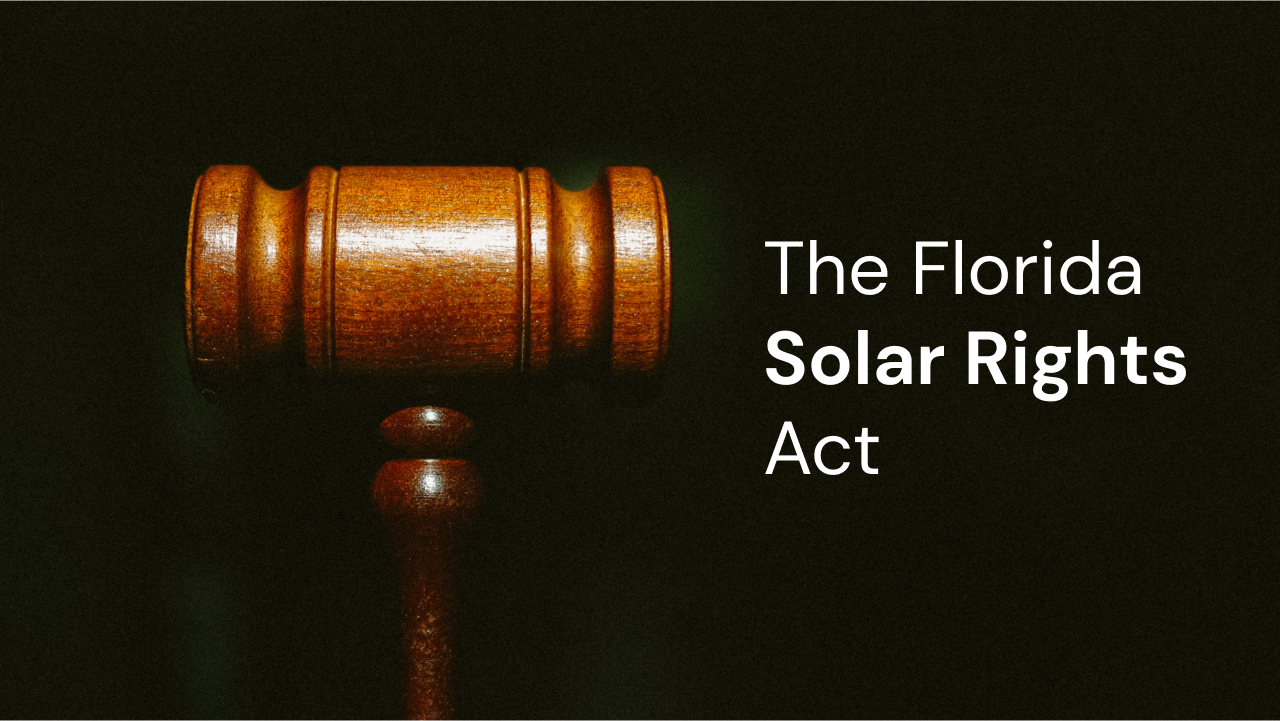The Florida Solar Rights Act (Florida statute 163.04) protects the right of building owners to install solar panels. This Florida solar law prohibits homeowner associations and other groups from preventing the installation of solar panels on buildings in Florida.
HOAs and other groups are allowed to require their approval of solar system plans before installation. However, approval must not be contingent upon factors that would prevent the installation from functioning properly. This means that HOAs and other covenants can require solar panels to be placed in a specific area of the roof, so long as that area is within 45 degrees of due south. This requirement ensures that restrictions on solar panel placement do not detract from the effectiveness of the solar array since due south is the best direction for solar panels in Florida.
Florida Solar Rights Example
TR is considering moving into a neighborhood with an HOA. The house TR is considering purchasing is oriented east-west with the front of the house facing south.
The HOA restrictions as written prohibit installation of solar panels within view of the street. The only roof face available to TR which meets this requirement is the back of the roof, which faces north.
What are TR’s rights under the Florida Solar Rights Act?
Under the Florida solar rights act, an HOA cannot prevent TR from installing solar panels. This includes prevention based on imposing requirements on installation that would place the solar panels outside of 45 degrees from due south. Since the only roof face that TR has within 45 degrees from due south faces the street, TR must be allowed to install solar panels facing the street, in spite of the HOA’s requirements that the solar panels be hidden from view. In other words, the HOA’s requirements cannot legally be enforced in TR’s case.
More Information About the Florida Solar Rights Act
The Florida Solar Rights Act also applies to clotheslines and “other energy devices based on renewable resources.”
Below is the full text of the Florida Solar Rights Act, also known as the Florida Solar Rights Law or Florida statute 163.04:




